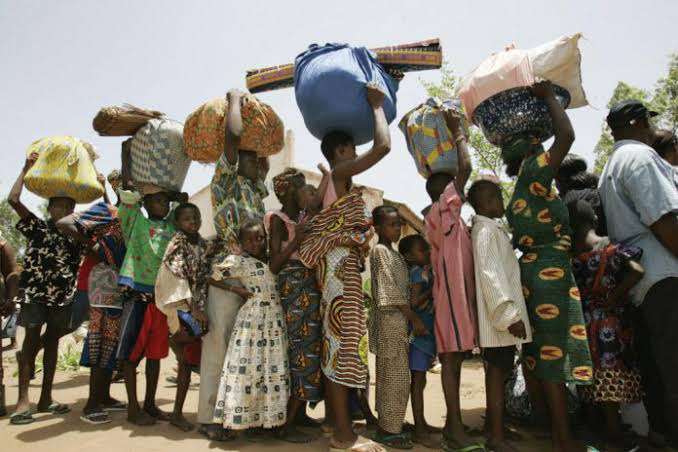Business
IMF ranks Nigeria 12th poorest country globally by GDP per capita

The International Monetary Fund (IMF) has ranked Nigeria as the 12th poorest country in the world based on Gross Domestic Product (GDP) per capita, according to 2025 figures released in a recent report published by Visual Capitalist, a global data-driven media platform.
With a GDP per capita of just $807, Nigeria falls among the bottom 15 of the world’s 50 poorest countries, highlighting the growing disconnect between the country’s economic size and the living standards of its citizens. The ranking reflects persistent structural challenges and widespread poverty, despite Nigeria being Africa’s largest economy in terms of overall GDP.
Nigeria’s total GDP, driven largely by oil exports, telecommunications, and agriculture, often places it among the top African economies.
However, when income is divided by its estimated 223 million population, the country’s per capita earnings paint a drastically different picture — one of widespread hardship.
Economic analysts say this discrepancy underscores a decades-long failure to translate macroeconomic growth into broad-based development. High unemployment, inflation, insecurity, corruption, and a lack of social safety nets continue to undermine individual well-being.
“This is a classic case of growth without development,” said an Abuja-based economist, Dr. Tunde Aladesanmi. “Nigeria has wealth, but the average Nigerian remains poor because institutions are weak, infrastructure is poor, and corruption is widespread.”
South Sudan tops the list as the world’s poorest country, with a GDP per capita of just $251. Other countries rounding out the bottom five include Yemen, Burundi, the Central African Republic, and Malawi — nations all struggling with long-term conflict, fragile governance, or economic instability.
The list of 50 poorest countries features a large concentration of African nations, including Madagascar, Sudan, the Democratic Republic of Congo, Mozambique, and Niger. These countries share similar characteristics: weak industrial capacity, heavy reliance on primary commodity exports, and limited human capital investment.
According to the Visual Capitalist report, Africa is grossly underrepresented in the global economy: “Africa accounts for 19% of the world’s population, yet contributes just 3% to the global GDP of $113 trillion,” the report noted.
Nigeria’s inclusion among the poorest nations by per capita income is not entirely new. Past reports by the World Bank and National Bureau of Statistics (NBS) have also flagged rising poverty levels, with over 60% of Nigerians believed to be living on less than $2.15 a day — the global poverty line.
Despite reforms introduced by President Bola Ahmed Tinubu’s administration — including the removal of fuel subsidies and unification of exchange rates — the cost of living has spiked, leading to protests and widespread dissatisfaction.
“The reality is that economic reforms may be necessary, but without robust palliative measures and social investment, the poorest continue to suffer,” said Dr. Aladesanmi.
The report also shows that some of the world’s biggest economies still struggle with low per capita income. India, for example, ranks as the 50th poorest, with a GDP per capita of $2,878, due to its massive population of over 1.4 billion. This illustrates that economic size alone does not guarantee wealth at the individual level.
To change the narrative, economists recommend Nigeria focus on diversifying the economy, investing in health and education, and improving infrastructure and governance. Experts also stress the need to tackle insecurity, especially in the north, to unlock the country’s agricultural and human potential.
Until such measures are effectively implemented, the irony may remain: Africa’s largest economy, but one of the poorest nations for its people.


